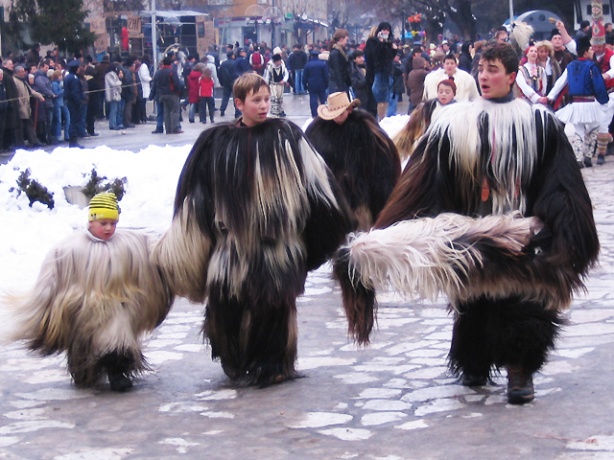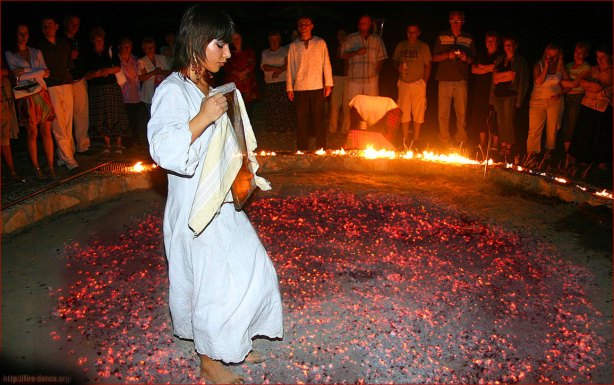Trifon’ Day is a holiday in honour of St.Trifon who is patron of the winegrowers, tavern-keepers and gardeners. Early in the morning of the first of February the mistress of the house kneads and bakes a loaf of bread , which is decorated with wine leaves. She also prepares a hen cooked with rice or groats. Then she put the bread, the hen, a wine vessel and a bottle of holy water in a brand new woolen bag. The master of the house takes the bag and togather with the other men of the village they go to the vineyards. Every man visits his own vineyard and the first thing he does there is to make the sign of the cross facing the sun. Then he cuts three roots from three different vines and then he pours out some wine over the cut spots and makes the blessing: “As many drops of wine, that many grapes in the vine”. This ritual is called “zarejazvane” (cutting).
After that every winegrower sprinkles his vineyard with holy water which is done for rich harvest and prevention of hailstorms. After the cutting of the vines the men gather around one table set in the vineyards. In some region of the country before sitting by the table the men choose “a king” first and he is the one to lead the feast. “A king” may become every man, but it is usually the richest or “the luckiest” one that is chosen and thus the harvest will be very rich too. The chosen king raises the wine vessel, cuts some vine and pronounces the blessing: “on every vine a quarter of a bushel, from every quarter a full tub of wine”. 
After the feast the whole group goes to the village lead by who the others carry on their shoulders. The men visit every house in the village. The master of the house serves them wine in a white pot presenting it first to the “king” and then to the others. The wine which remains in the pot is then poured on the king with the words: “For the rich harvest and for wine overflowing the thresholds”.
After the men have paid a visit in every house of the village they go to the “king’s” place and he is obliged to serve wine to then all. The holiday is also known as “Trifon the Drunkard”, because the “king” must inevitably get drunk so that there will be a rich harvest in the vineyards.
In some regions of the country there are many other magical rituals performed on this day. In the region of Skopje dust is spread around the vineyard so that the grapes will grow bigger. In some other places, the men dig hole in the middle of the vineyard where they bury a bottle of holy water. This is done for prevention of hailstorms.
With Trifon’s Day the Wolve`s holidays begin.
Church Holiday: Saint Trifon – a saint-healer, who cured the daughter of the Roman Emperor Gordian and thus became a celebrity. He was sentenced to death by Dekius Trajan and died like a martyr.
Ritual Table: unleavened bread, hen with rice or groats, baked flat sausages, omelette, cheese-cake.
picture from http://www.mediatimesreview.com/july06/DochevGallery1.php





